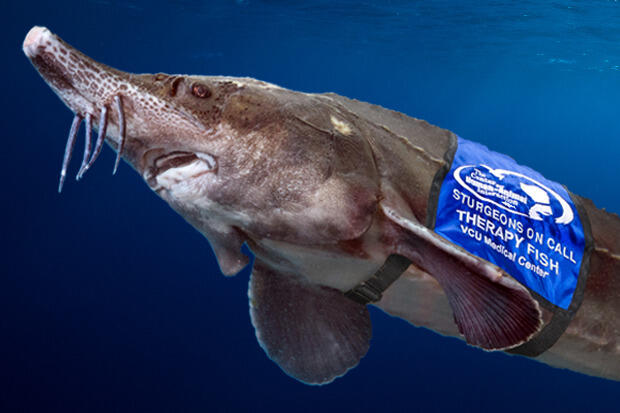
April 1, 2017
VCU launches Sturgeons on Call, a first-of-its-kind animal therapy program that uses fish instead of dogs
Share this story
In the coming months, Virginia Commonwealth University will be expanding its well-known Dogs on Call program from the usual wagging tails and wet noses to something a bit more unconventional – fins and wet, well, everything. The new program — Sturgeons on Call — will be the first in the country to use sturgeon, large prehistoric fish that once swam with dinosaurs but that are now battling extinction, as a therapy animal.
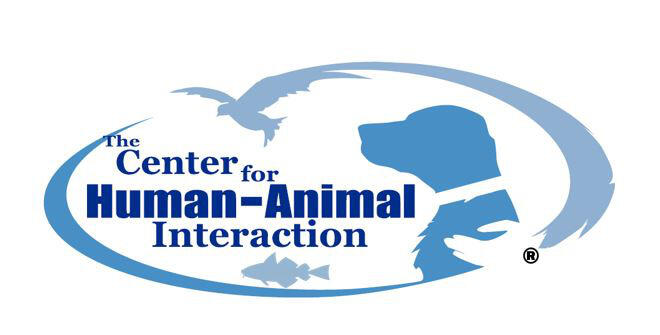
Like the Dogs on Call program, which was founded in 2001, the aim of the new program is to reduce stress and anxiety among hospital patients and bring some much-needed distraction and joy to people who find themselves grappling with health issues away from the usual comforts of home. Studies have shown that medical staff, whose jobs are often associated with high levels of stress, also benefit greatly from animal therapy visits.
“Over the years, the Dogs on Call program has become so popular that even with more than 60 dogs and their handlers, we aren’t always able to keep up with the demand,” said Sandra Barker, Ph.D., professor of psychiatry and director of VCU’s Center for Human-Animal Interaction.
For the past few years, they have been considering expanding the program to a new animal, she said. Fast-forward to a couple of months ago, when Barker bumped into a researcher from the VCU Rice Rivers Center and a moment of inspiration struck.
Wouldn’t it be great if people were as familiar with sturgeons as they are with dogs?
“We had been chatting about Dogs on Call a little bit and then [the researcher] started talking about the work the Rice Rivers Center is doing to restore Atlantic sturgeon to the James River, which is really fascinating, and the researcher made a comment about how, ‘Wouldn’t it be great if people were as familiar with sturgeons as they are with dogs,’ and the idea just sort of clicked,” Barker said.
When she approached Greg Garman, Ph.D., director of the Rice Rivers Center, he was thrilled with the concept. “If we can get the word out about how great sturgeon are and at the same time brighten the day of a child who is stuck in the hospital, that’s a win-win,” Garman said.
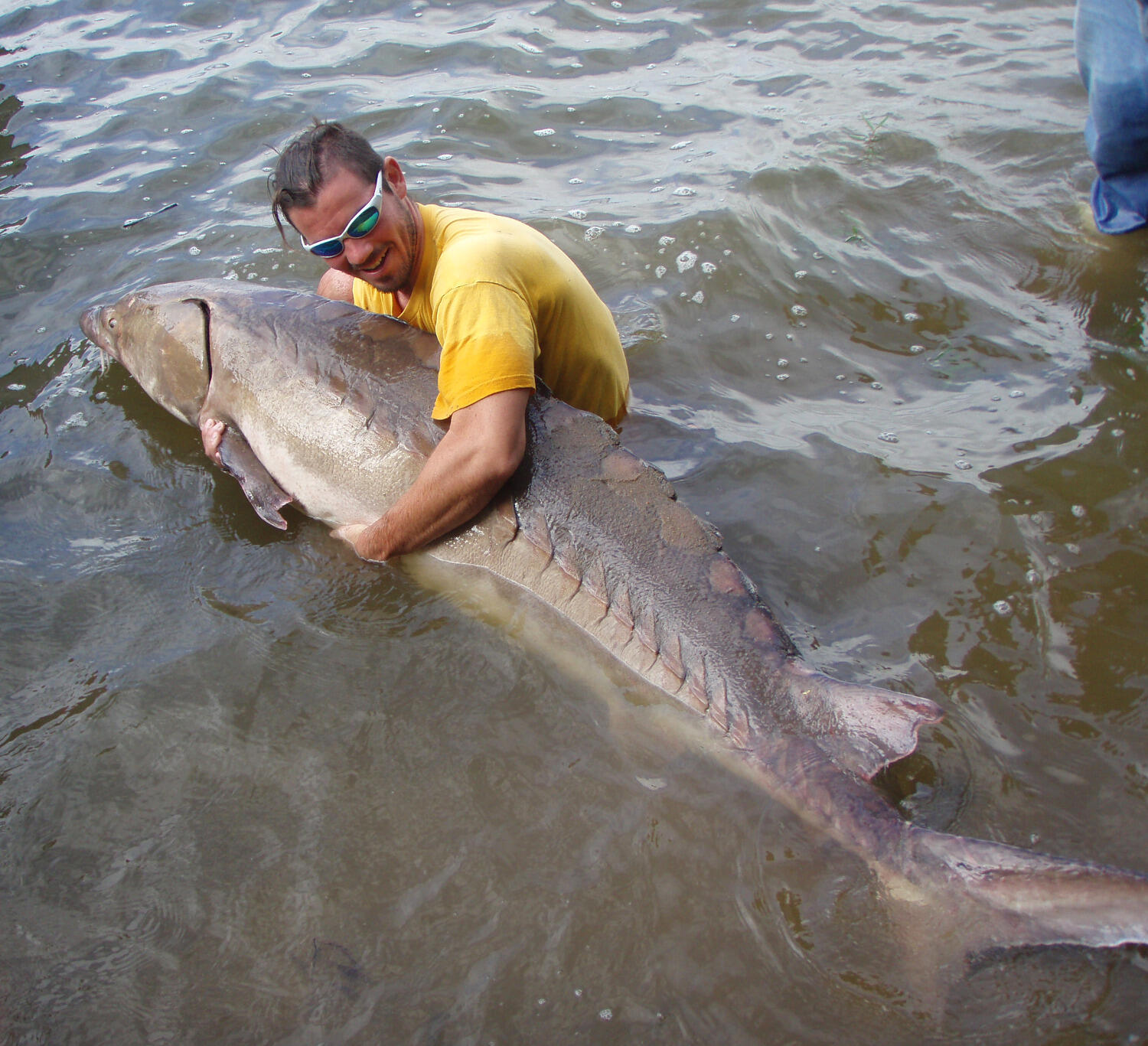
Garman believes sturgeon are particularly well-suited to being therapy animals. Though they are very large, he describes them as docile, gentle giants, who don’t shy away from the touch.
“They move slowly and don’t flap around like a lot of other fish; it’s relatively easy to turn them over so that people can give them belly rubs,” said Garman. “Plus there’s the cool factor – they kind of look like sharks, but without the teeth, so you don’t have to be afraid.”
While their size poses a challenge, Susan Scales, program coordinator for Sturgeons on Call, explained that it also has created opportunities for cross-disciplinary collaboration in devising solutions.
“Some master’s students in the School of Engineering are designing special portable tanks that can be maneuvered in hospital rooms and hallways,” she said. “And the tanks will have special filters that reduce germs, which is particularly important in the hospital environment.”
Garman and his team have been working with a fashion class from VCU’s School of the Arts to design a special vest for the sturgeon to wear. The innovative vest won’t interfere with the sturgeons’ fins or gills, and will even help them breathe outside of the tanks.
“When we’re through with them, the hope is that these vests will allow the fish to be out of the water for up to 20 minutes at a time,” Garman said.
In addition to hospital visits, the sturgeon and their handlers will participate in stress-relief events for students on VCU’s campus around exam time.
“Instead of Paws for Stress, we’re calling it Fins for Finals,’’ said Scales.
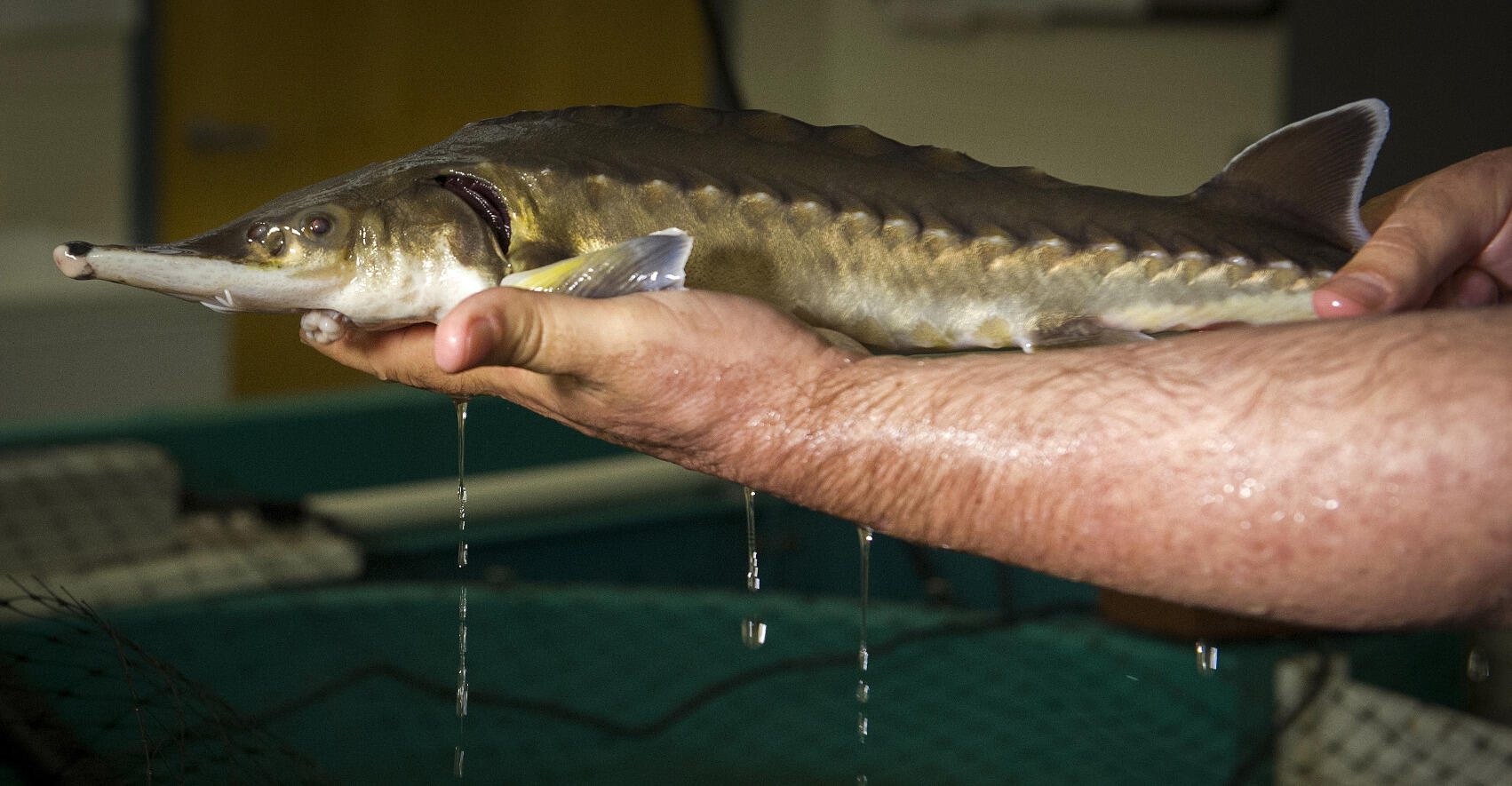
On a recent afternoon, a team from Sturgeons on Call made its first test run to the Children’s Hospital of Richmond at VCU. A juvenile Atlantic sturgeon named Mr. Scuttlebutt visited several children and their parents.
“It was awesome!” said Calvin Reed, a seven-year-old being treated for Type 1 diabetes. “My sister was afraid to touch it, but not me. He felt slimy and cool. I’m going to ask my mom if I can have one for my birthday.”
Both Barker and Garman said they were pleased with the program’s progress thus far and anticipate the project lending itself to new avenues of research, such as how fish compare to other animals when it comes to stress reduction.
“But most of all, we’re just happy to add a new species to our lineup,” Barker said. “You’d be surprised how many people are allergic to dogs or who just don’t like them for one reason or another. Having a new way to help calm people and provide a little distraction to their day is going to be a huge help. And we know people are going to fall in love with these magnificent beasts, just like we have.”
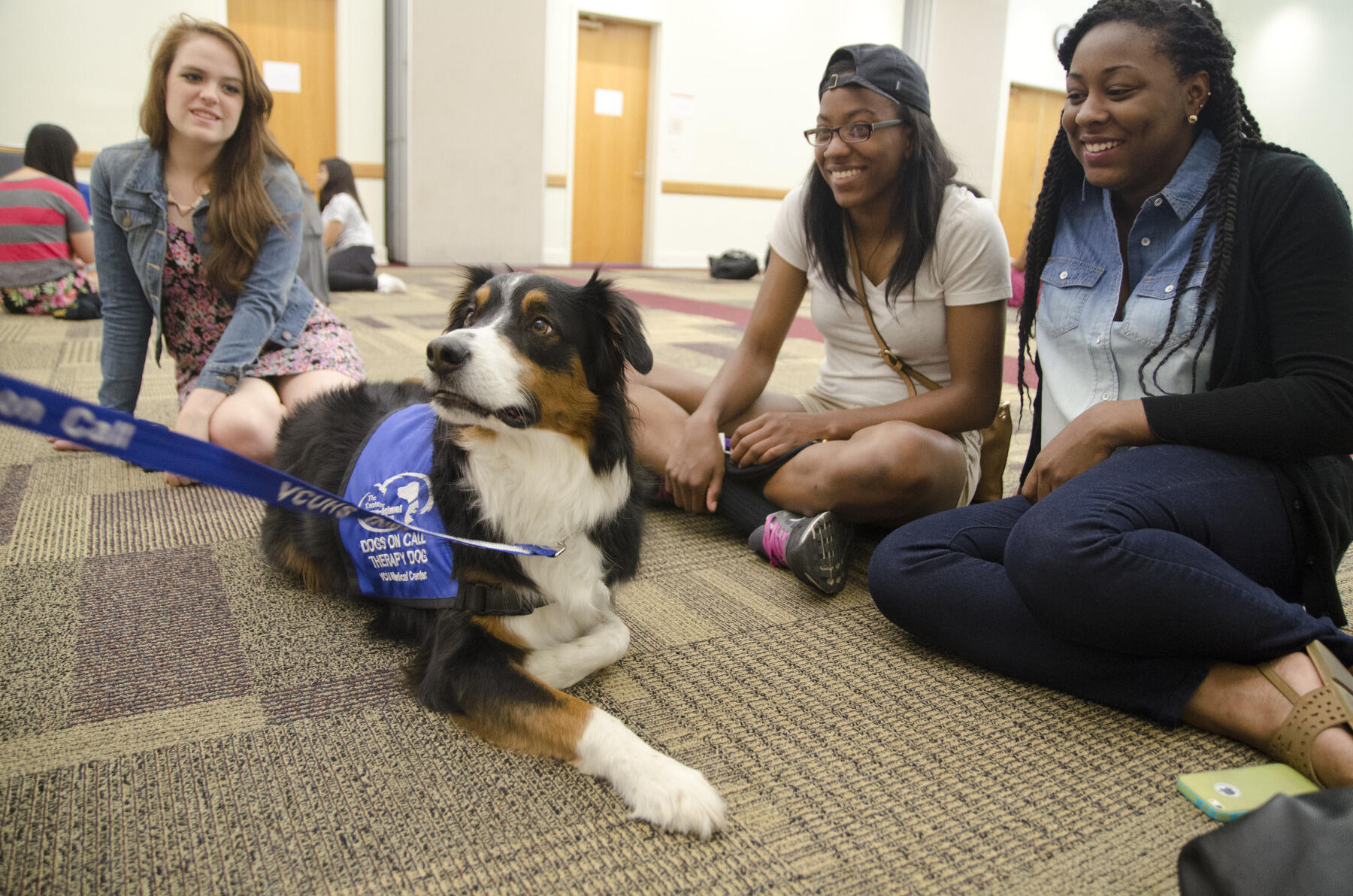
Note: As much as we at VCU love sturgeons, the above story is an April Fool’s prank. However, the research that the Rice Rivers Center is doing to restore Atlantic sturgeon to the James River is very real, as is the wonderful Dogs on Call therapy dog program of the Center for Human-Animal Interaction. You can learn more about them at ricerivers.vcu.edu/research/at
Subscribe to VCU News
Subscribe to VCU News at newsletter.vcu.edu and receive a selection of stories, videos, photos, news clips and event listings in your inbox.










